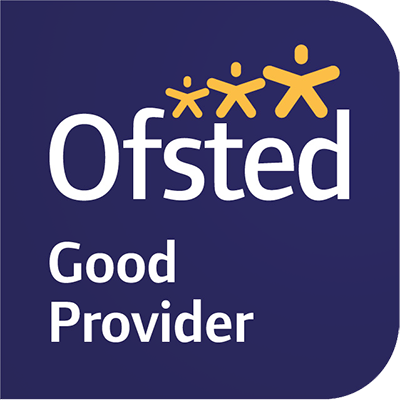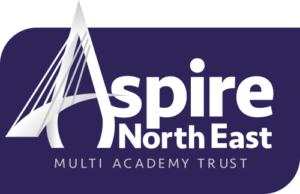Well Being (Keystage 3) Curriculum Overview
Click here to download our curriculum overview for Well Being
Aim
Here at Sandhill View Academy, we aim to securely equip all of our students for life beyond school as successful, confident, responsible and respectful citizens. We believe that education provides the key to social mobility and our curriculum is designed to build strong foundations in the knowledge, understanding and skills which lead to academic and personal success. We want our students to enjoy the challenges that learning offers.
Our aims are underpinned by a culture of high aspirations. Through developing positive relationships, we work towards every individual having a strong belief in their own abilities so that they work hard, build resilience and achieve their very best.
Intent
The curriculum includes formal teaching through subject areas, assemblies and extracurricular activities. We regularly review content to ensure we continue to meet our curriculum aims. The Well Being curriculum allows student to be more able to manage themselves and the society in which they live, developing oracy skills and an understanding of their place in the world this is covered through schemes of work, lesson planning, homework, extended independent work, and extra-curricular activities. We regularly review content to ensure we continue to meet our curriculum aims.
Our curriculum is planned to enable all students to develop: a knowledge, understanding and wide range of transferable oracy skills that promote and encourage a love of debate and discussion and a willingness to apply themselves to new challenges both across the curriculum and independently; a natural sense of curiosity and a drive to question, argue and persuade; the encouragement of creativity and risk taking; the reading of contemporary and literary texts that promote positive and healthy lifestyles, British values of mutual respect and love of learning about other cultures and traditions; the encouragement of purposeful talk and attentive listening skills in collaborative work and a development of the emotional skills required to listen; opportunities to use their knowledge and skills in language and literature to open possibilities in the world of work and the post 18 opportunities including broadening their experience of the wider world.
Throughout our programmes of study, every attempt is made to make explicit links to careers and the world of work. In addition to subject specific links, we aim to explicitly reinforce the skills and aptitudes which support employers say are important in the workplace;
- Resilience (Aiming High, Staying Positive, Learning from Mistakes)
- Collaboration (Teamwork Leadership, Communication)
- Creativity (Originality, Problem Solving, Independent Study)
The British values of democracy, the rule of law, individual liberty, and mutual respect of those with different faiths and beliefs are taught explicitly and reinforced in the way in which the school operates.
Sequence and structure
Our curriculum is split over Key Stage 3 (years 7, 8 and 9).
Key Stage 3 Curriculum
Our Key Stage 3 Curriculum includes the following areas of study:
In Year 7 we study questions such as:
- Is family more important than school?
- Is the UK a meritocracy?
- Is gender nature or nurture?
- Is IQ nature or nurture?
- How should we treat animals? …
- Is everything connected? …
- Is it ever OK to lie? If so, under what circumstances?
- Is it right to ever kill someone? Why or why not?
In Year 8, we study questions such as:
- Do social institutions force us to conform?
- Is equality of opportunity possible here, for us, in Sunderland?
- What is a conscience? Can it ever be wrong?
- Do guns protect people or kill people?
- Will racism cease to exist?
- Is criminality nature or nurture?
- Psychological experimentation – do our behaviours change given the environment we exist in?
How does our Curriculum cater for students with SEND?
Sandhill View is an inclusive academy where every child is valued and respected. We are committed to the inclusion, progress and independence of all our students, including those with SEN. We work to support our students to make progress in their learning, their emotional and social development and their independence. We actively work to support the learning and needs of all members of our community.
A child or young person has SEN if they have a learning difficulty or disability which calls for special educational provision to be made that is additional to or different from that made generally for other children or young people of the same age. (CoP 2015, p16)
Teachers are responsible for the progress of ALL students in their class and high-quality teaching is carefully planned; this is the first step in supporting students who may have SEND. All students are challenged to do their very best and all students at the Academy are expected to make at least good progress.
In Well Being, SEND support is provided by class teachers through differentiated teaching methods. Additional support is provided by the SENDCO and trained teaching assistants. We also have resourced provision for those students with HI.
How does our curriculum cater for disadvantaged students and those from minority groups?
As a school serving an area with high levels of deprivation, we work tirelessly to raise the attainment for all students and to close any gaps that exist due to social contexts. The deliberate allocation of funding and resources has ensured that attainment gaps are closing in our drive to ensure that all pupils are equally successful when they leave the Academy.
In Well Being, each member of staff holds a teaching handbook that identifies disadvantaged pupils. Pupils are placed in the classrooms with careful consideration so that they receive high quality focus and support from staff and peers.
How do we make sure that our curriculum is implemented effectively?
Staff have regular access to professional development/training to ensure that curriculum requirements are met. Curriculum resources are selected carefully and reviewed regularly.
How do we make sure our curriculum is having the desired impact?
- Lesson observations
- Learning walks
- Regular feedback from Teaching Staff during department meetings
- Regular feedback from Middle Leaders during curriculum meetings
- Pupil surveys
- Parental feedback




